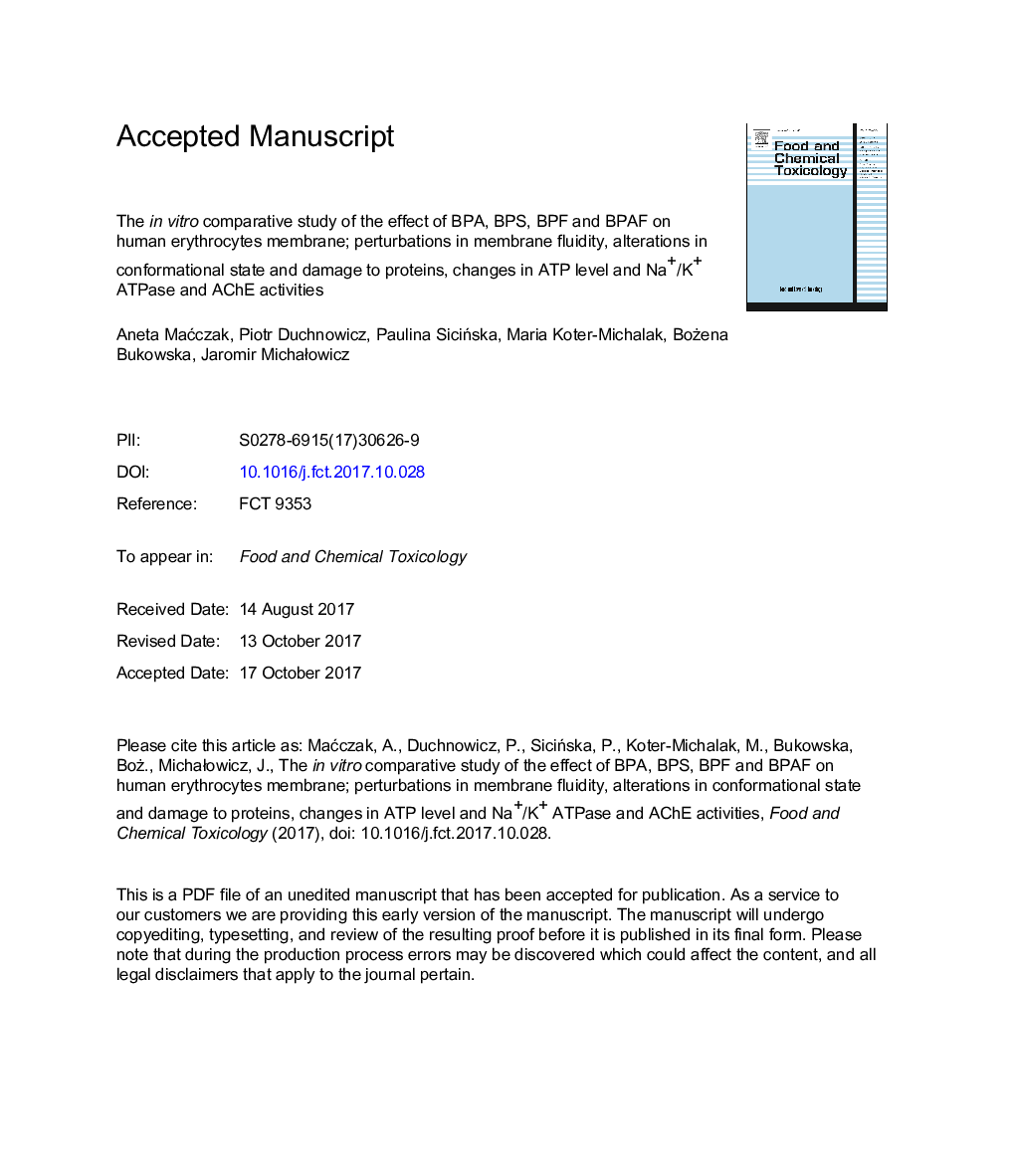| Article ID | Journal | Published Year | Pages | File Type |
|---|---|---|---|---|
| 8548630 | Food and Chemical Toxicology | 2017 | 42 Pages |
Abstract
Bisphenols are massively used in the industry, and thus the exposure of biota including humans to these substances has been noted. In this study we have assessed the effect of BPA and its selected analogs, i.e. BPS, BPF and BPAF on membrane of human red blood cells, which is the first barrier that must be overcome by xenobiotics penetrating the cell, and is commonly utilized as a model in the investigation of the effect of different xenobiotics on various cell types. Red blood cells were incubated with BPA and its analogs in the concentrations ranging from 0.1 to 250 μg/ml for 4 h and 24 h. We have noted that the compounds studied altered membrane fluidity at its hydrophobic region, increased internal viscosity and osmotic fragility of the erythrocytes and altered conformational state of membrane proteins. Moreover, bisphenols examined increased thiol groups level, caused oxidative damage to membrane proteins, decreased ATP level, depleted the activity of Na+/K + ATPase and changed the activity of AChE in human red blood cells. It has been shown that the strongest changes were noted in cells treated with BPAF, while BPS caused the weakest (or none) alterations in the parameters studied.
Related Topics
Life Sciences
Agricultural and Biological Sciences
Food Science
Authors
Aneta MaÄczak, Piotr Duchnowicz, Paulina SiciÅska, Maria Koter-Michalak, Bożena Bukowska, Jaromir MichaÅowicz,
